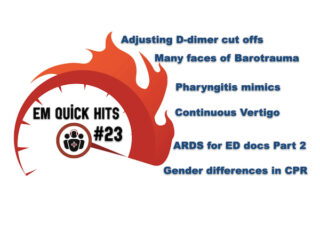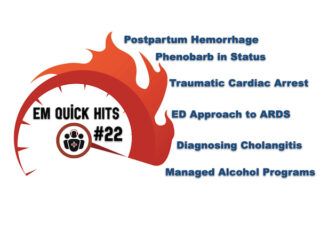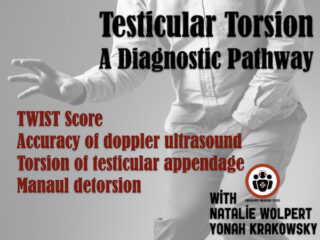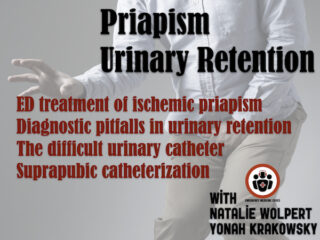EM Quick Hits 23 – Clinical Probability Adjusted D-dimer, ARDS Part 2, Pharyngitis Mimics, Barotrauma, Vertigo, CPR Gender-Based Differences
In this month's EM Quick Hits podcast we have Salim Rezaie on clinical probability adjusted D-dimer for pulmonary embolism, Bourke Tillmann on ARDS for the ED Part 2, Brit Long & Michael Gottlieb on pharyngitis mimics, Justin Hensley on the many faces of barotrauma, Hans Rosenberg & Peter Johns on assessment of continuous vertigo and Justin Morgenstern & Jeannette Wolfe on gender-based differences in CPR...










